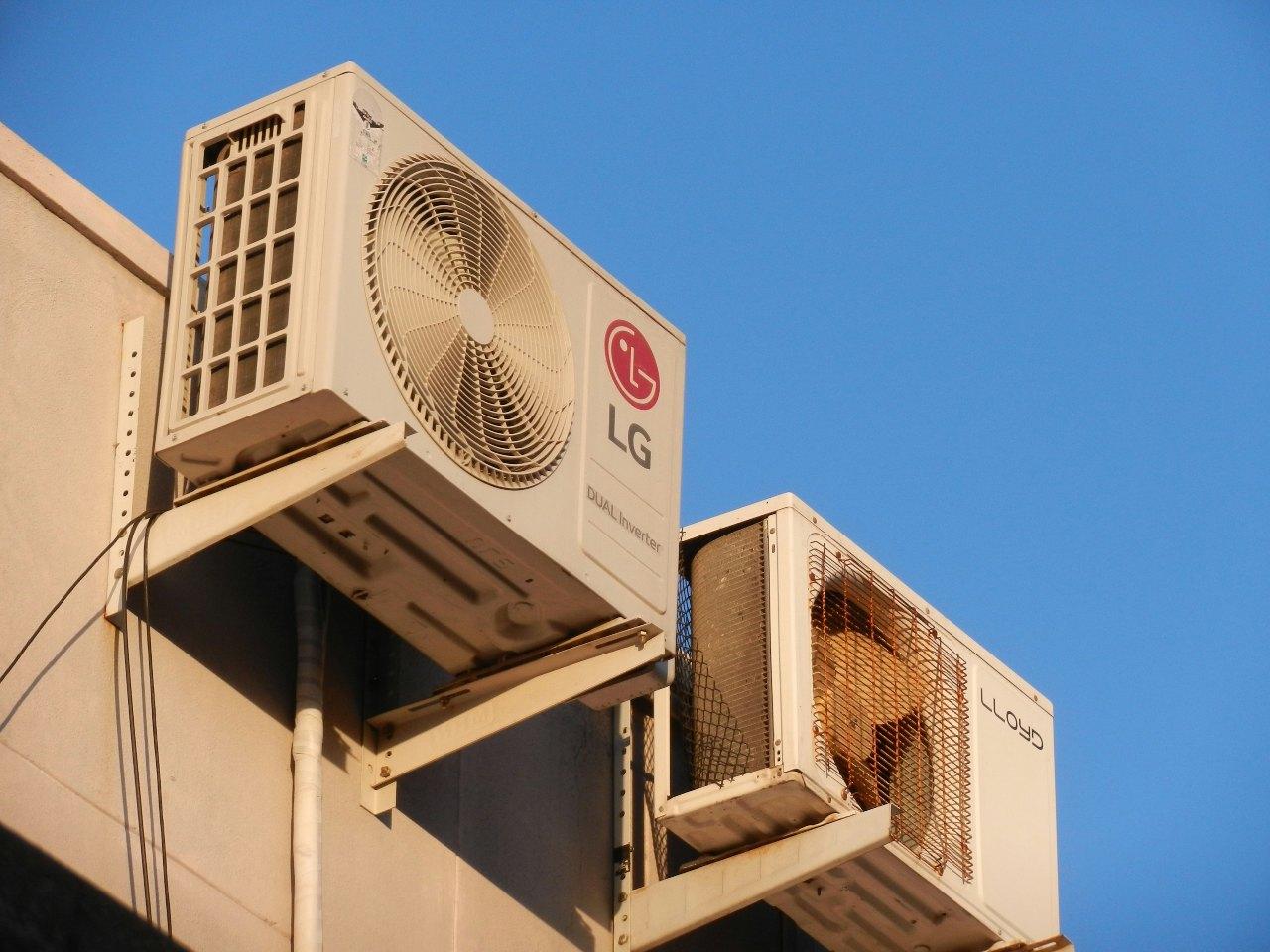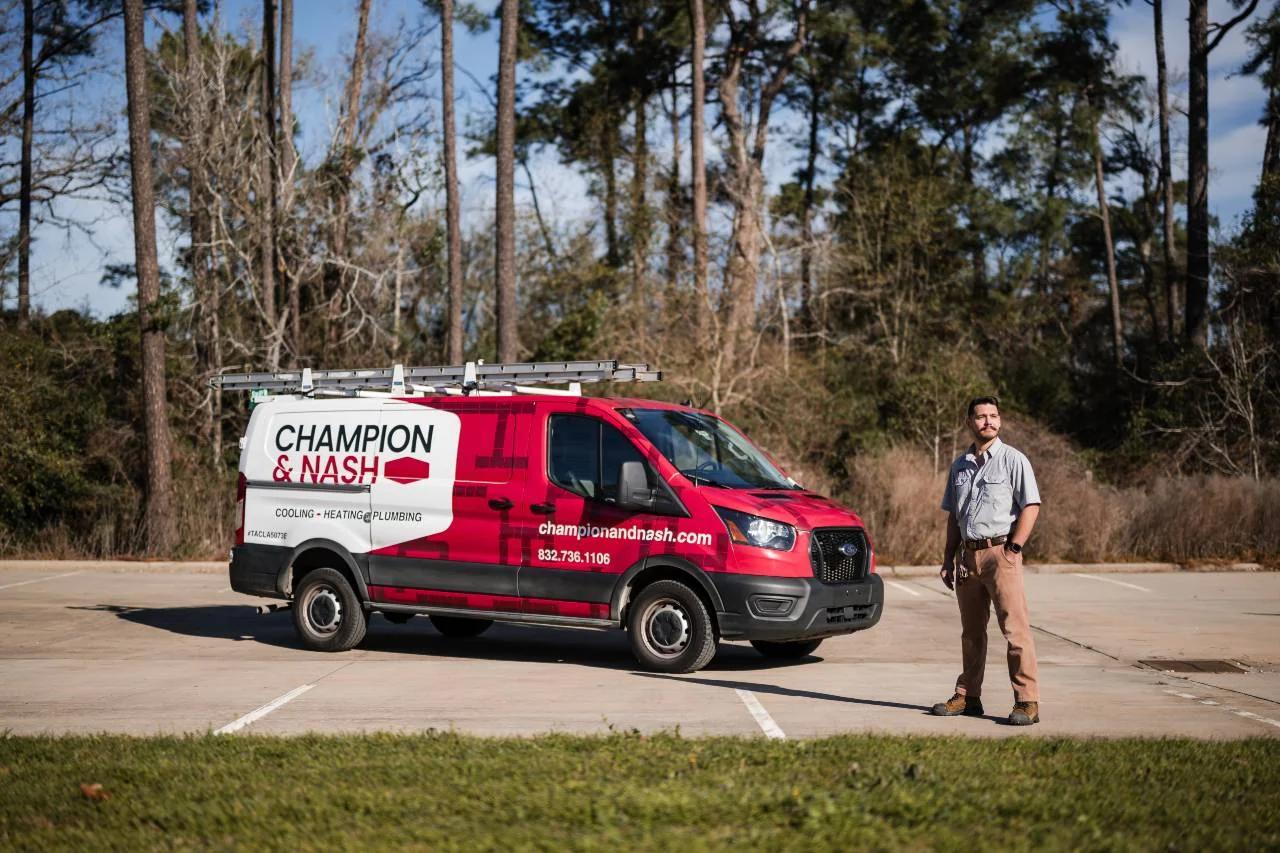If you wondered when should I replace my your AC unit? The answer depends on several factors: cost of repairs, the age of your system, and its efficiency.

Air conditioning is essential in Houston, where long stretches of heat demand reliable cooling. But no AC unit lasts forever, and knowing when to replace your system is one of the most important decisions a homeowner can make. Waiting too long can result in higher repair bills, energy waste, and uncomfortable living conditions. On the other hand, replacing too early may feel like unnecessary expense. So the questions rises, must I replace my AC Unit?
So, when is it time? The answer depends on several factors: cost of repairs, the age of your system, and its efficiency. These three areas give homeowners a clear picture of whether it’s smarter to keep repairing or to invest in a new unit. A balanced approach helps you avoid pouring money into a system that can’t perform at today’s standards.
At Champion and Nash, we’ve helped Houston families make this decision for decades. With experience across AC repair, AC maintenance, and AC installation, we know the signs that indicate replacement is the smarter move. Below, we’ll break down what to look for, supported by cost comparisons, system age expectations, and efficiency statistics.

For many homeowners, cost is the first consideration. While some repairs are inexpensive, others add up quickly. Replacing a capacitor or thermostat is manageable, but when larger components like compressors fail, repair bills can climb into the thousands.
The “50% rule” is a helpful guideline: if your repair costs are more than half the price of a new unit, replacement is usually smarter. Continuing to repair an old system often means paying for parts that may fail again. Instead, investing in a new installation gives you a warranty, better efficiency, and peace of mind.
Even with excellent maintenance, age catches up to every system. Most units last 10–15 years before replacement becomes necessary. After 12 years, efficiency typically declines, parts become harder to find, and breakdowns happen more often.
Older systems also use outdated refrigerants like R-22, which are expensive and difficult to replace. Once your AC passes the 12–15 year mark, it’s usually better to start planning for a new system instead of facing constant repair bills. A newer model will save you money long term and deliver consistent comfort through Houston’s heat.
Efficiency is where many homeowners underestimate the value of replacement. An AC that technically “works” may still be wasting energy. Older units need more electricity to cool your home, which leads to higher bills. Even if you repair them, they rarely return to peak performance.
New systems, especially those with high SEER ratings, provide stronger cooling at a fraction of the cost. They also handle humidity control better, which is important for Houston’s climate. Upgrading is an investment that pays off each month on your utility bill while keeping your home consistently comfortable. For more details on how efficiency impacts costs, see Energy.gov’s guide.
Cost and age matter, but comfort is equally important. If your home has hot spots, weak airflow, or feels damp even when the AC runs, it’s a sign that replacement could solve the issue. Older systems often struggle to maintain even cooling, leaving parts of your home uncomfortable.
Upgrading to a modern system ensures consistent airflow, quieter operation, and improved indoor air quality. For households with allergies or respiratory concerns, replacement can provide significant relief. A comfortable, healthy home environment is a major reason many homeowners choose to replace sooner rather than later.
Maintenance is essential for extending your AC’s life, but it’s not a permanent solution. Regular AC maintenance in Houston can catch small issues early, reduce wear, and extend system life by a few years. However, even the best-maintained systems will eventually need replacement.
If you find yourself scheduling maintenance and still facing frequent breakdowns, it’s a sign the system has reached the end of its lifespan. Maintenance helps, but replacement is what restores efficiency, reliability, and peace of mind.
You should consider replacement if your AC is over 12 years old, requires frequent repairs, or fails to cool your home evenly. Rising energy bills and unusual noises are also signs your system is no longer efficient. Following the 50% rule—where repair costs exceed half the price of a new unit—helps guide the decision. Replacement offers lasting comfort, efficiency, and peace of mind, especially in Houston’s demanding climate.
Yes, in some cases. If your unit is under 10 years old and the repair is minor, fixing it may be the right call. However, for older systems, especially those nearing 12–15 years, repairs are often just temporary fixes. At that point, investing in replacement usually saves more money and prevents ongoing frustration with frequent breakdowns.
Most AC units last 10–15 years in Houston, depending on how well they’re maintained. Houston’s hot summers put extra strain on cooling systems, often shortening their lifespan compared to cooler climates. Regular maintenance helps, but after 12 years, efficiency usually declines, and replacement becomes the more practical option.
Newer AC units are far more efficient than older ones. Homeowners typically save 20–40% on their cooling costs with an upgrade. Beyond monthly savings, a new system reduces repair expenses, provides warranty coverage, and improves comfort. Over time, these benefits outweigh the upfront cost of installation.
Yes, replacing before total failure is usually best. Waiting until your AC dies often means emergency costs, higher stress, and limited options. Planning ahead allows you to compare systems, schedule installation at a convenient time, and avoid going without cooling during peak summer heat. Proactive replacement ensures smoother transitions and better long-term savings.
Knowing when to replace your AC unit comes down to evaluating cost, age, and efficiency. While repairs may solve short-term issues, replacement often provides better value, comfort, and savings. Houston homeowners who invest in modern systems enjoy reliable cooling, lower bills, and peace of mind.
Champion and Nash offers trusted AC repair, AC maintenance, and AC installation across Houston. Our team provides honest guidance so you can make the right choice for your home.